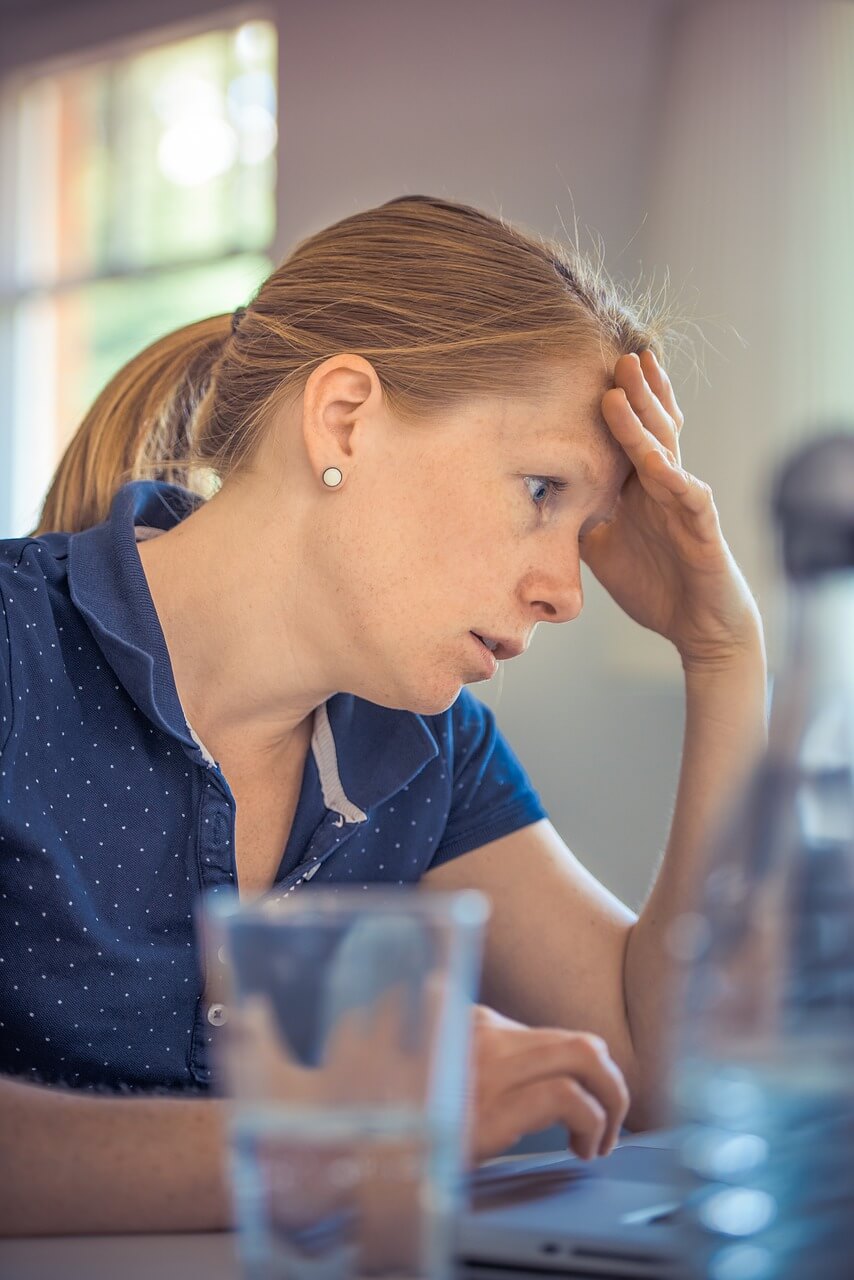In today’s fast-paced world, stress has become a common factor that affects everyone at some point in their lives. Whether it’s work-related stress, relationship problems, financial issues, or health concerns, stress can take a toll on your mental and physical well-being. But the good news is that you don’t have to let stress control your life. With the right mindset and a few simple lifestyle changes, you can learn to manage your stress levels and start living your best life. In this article, we’ll explore 10 simple ways to stop stressing and start living a happier, healthier, and more fulfilling life. From practicing mindfulness and staying active to cultivating healthy relationships and finding your purpose, these tips will help you overcome stress and achieve your goals. So, let’s dive in and discover how you can transform your life today!
Identify sources of stress in your life
The first step to managing stress is to identify the sources of stress in your life. This could be anything from work-related stress, family problems, financial worries, or health concerns. By identifying the sources of stress, you can take steps to manage or eliminate them altogether. For example, if work-related stress is causing you to feel overwhelmed, you could talk to your boss about reducing your workload or finding ways to manage your time more effectively. If financial worries are keeping you up at night, you could create a budget or seek professional financial advice to help you manage your money better.
It’s also important to recognize the physical and emotional symptoms of stress, such as headaches, fatigue, irritability, and difficulty sleeping. By paying attention to these symptoms, you can take steps to manage them and prevent stress from taking over your life. This could include practicing relaxation techniques, such as deep breathing exercises, taking a warm bath or shower, or listening to calming music.
Ultimately, the key to managing stress is to take a proactive approach and identify the sources of stress in your life. By doing so, you can take control of your life and start living your best life.
Mindfulness and meditation to reduce stress
Mindfulness and meditation are powerful tools for reducing stress and promoting relaxation. Mindfulness involves being present in the moment and focusing on your thoughts, feelings, and sensations without judgment. Meditation involves focusing your attention on a particular object, such as your breath, and allowing your thoughts to come and go without judgment.
Both mindfulness and meditation have been shown to reduce stress and anxiety, improve sleep quality, and promote overall well-being. To practice mindfulness, you can try simple exercises such as paying attention to your breath, focusing on the sensations in your body, or practicing gratitude. To practice meditation, you can start by setting aside a few minutes each day to sit quietly and focus on your breath.
There are also many apps and online resources available to help you practice mindfulness and meditation. Some popular options include Headspace, Calm, and Insight Timer. By incorporating mindfulness and meditation into your daily routine, you can reduce stress and promote relaxation, leading to a happier, healthier, and more fulfilling life.
Exercise and physical activity to combat stress
Exercise and physical activity are powerful tools for reducing stress and promoting overall well-being. Exercise can help to reduce the symptoms of stress, such as fatigue, anxiety, and depression, and promote feelings of happiness and relaxation. It also helps to improve sleep quality, boost energy levels, and promote overall physical health.
To incorporate exercise into your daily routine, you can try simple activities such as walking, jogging, cycling, or swimming. You can also join a gym or fitness class, or find a workout partner to help keep you motivated. The key is to find an activity that you enjoy and that fits into your schedule.
If you’re feeling stressed, try going for a walk or doing some gentle stretching exercises. Even just a few minutes of physical activity can help to reduce stress and promote relaxation. By incorporating regular exercise into your routine, you can reduce stress and promote overall health and well-being.
Prioritizing self-care and relaxation
Self-care and relaxation are essential for managing stress and promoting overall well-being. Self-care involves taking care of your physical, emotional, and mental health, while relaxation involves taking time to rest and recharge your batteries.
To practice self-care, you can try simple activities such as taking a warm bath, reading a book, or spending time in nature. You can also practice self-care by eating a healthy diet, getting enough sleep, and taking time to connect with loved ones.
To practice relaxation, you can try activities such as yoga, meditation, or deep breathing exercises. You can also spend time doing things that you enjoy, such as listening to music, playing a sport, or pursuing a hobby.
Ultimately, the key to managing stress is to prioritize self-care and relaxation. By taking care of yourself, you can reduce stress and promote overall well-being, leading to a happier and more fulfilling life.
Setting boundaries and learning to say no
Setting boundaries and learning to say no are essential for managing stress and promoting overall well-being. It’s important to recognize your own limits and to communicate them to others. This could involve saying no to additional responsibilities at work, setting aside time for yourself, or establishing healthy boundaries in your relationships.
Learning to say no can be difficult, but it’s an important skill to develop. By saying no to things that don’t align with your values or priorities, you can reduce stress and promote overall well-being. It’s also important to communicate your boundaries clearly to others, so they understand your needs and expectations.
Time management and organization strategies
Time management and organization strategies are essential for managing stress and promoting overall well-being. By managing your time effectively, you can reduce the feeling of being overwhelmed and create more time for the things that matter to you.
To manage your time effectively, you can try simple strategies such as creating a to-do list, prioritizing tasks, and breaking larger projects into smaller, manageable tasks. You can also find tools and apps to help you manage your time more effectively, such as calendars, task lists, and time tracking apps.
It’s also important to stay organized, both in your personal and professional life. This could involve decluttering your physical space, organizing your files and paperwork, or creating a system for managing your emails and messages. By staying organized and managing your time effectively, you can reduce stress and promote overall well-being.
The benefits of positive thinking and gratitude
Positive thinking and gratitude are powerful tools for managing stress and promoting overall well-being. By focusing on the positive aspects of your life and expressing gratitude for the things you have, you can reduce stress and promote feelings of happiness and well-being.
To practice positive thinking and gratitude, you can try simple exercises such as keeping a gratitude journal, practicing positive affirmations, or focusing on the things that you’re grateful for each day. You can also try to reframe negative thoughts and focus on the positive aspects of a situation.
By practicing positive thinking and gratitude, you can reduce stress and promote overall well-being, leading to a happier, healthier, and more fulfilling life.
Seeking support from loved ones and professionals
Seeking support from loved ones and professionals is essential for managing stress and promoting overall well-being. It’s important to have a support system in place, whether it’s friends, family, or a professional counselor.
If you’re feeling overwhelmed or stressed, reach out to a trusted friend or family member for support. You can also seek professional help from a counselor or therapist, who can provide you with tools and strategies for managing stress and promoting overall well-being.
Remember, it’s okay to ask for help when you need it. By seeking support from loved ones and professionals, you can reduce stress and promote overall well-being, leading to a happier, healthier, and more fulfilling life.
Incorporating stress-reducing habits into your daily routine
Incorporating stress-reducing habits into your daily routine is essential for managing stress and promoting overall well-being. This could involve practicing mindfulness and meditation, exercising regularly, prioritizing self-care and relaxation, setting boundaries and learning to say no, and managing your time effectively.
It’s also important to incorporate stress-reducing habits into your daily routine, such as taking breaks throughout the day, practicing deep breathing exercises, or spending time in nature. By making these habits a part of your daily routine, you can reduce stress and promote overall well-being, leading to a happier, healthier, and more fulfilling life.
Conclusion
Stress is a common factor that affects everyone at some point in their lives. But the good news is that you don’t have to let stress control your life. By adopting a proactive approach and incorporating simple lifestyle changes into your routine, you can manage your stress levels and start living your best life. From practicing mindfulness and staying active to cultivating healthy relationships and finding your purpose, these tips will help you overcome stress and achieve your goals. So, take the first step today and start living your best life!










